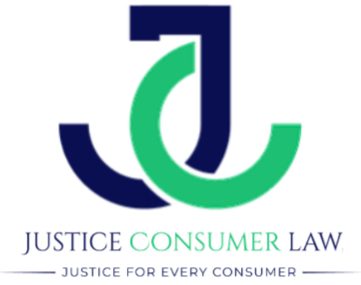Filing a debt relief lawsuit in Chicago helps consumers protect their rights against abusive debt collectors and credit report errors. The process typically involves filing a claim under the Fair Debt Collection Practices Act (FDCPA) or the Fair Credit Reporting Act (FCRA) to address violations that harm your financial health. If you are dealing with unfair debt collection tactics or inaccurate credit reports, filing a lawsuit can help hold these companies accountable. Justice Consumer Law is here to guide you through the process with expert legal support.
A debt relief lawsuit in Chicago is a legal action that helps consumers address abusive debt collection or inaccurate credit reports. It typically involves identifying violations under the FDCPA or FCRA, consulting a qualified attorney, filing the case in court, and seeking resolution through settlement or trial to protect financial rights and restore stability.
What Is a Debt Relief Lawsuit?
A debt relief lawsuit allows consumers to challenge illegal debt collection practices or inaccuracies on their credit reports. This legal action can be taken under the FDCPA or FCRA, which protect consumers from abusive debt collection and ensure that credit reporting agencies maintain accurate records. According to the Consumer Financial Protection Bureau (CFPB), nearly 25% of consumer complaints involve debt collection issues or credit report inaccuracies.
How Do You Know If You Need to File a Debt Relief Lawsuit?
You may need to file a debt relief lawsuit if you have experienced aggressive debt collection tactics such as harassment or threats, or if your credit report contains inaccuracies that negatively affect your financial standing. If these issues are not resolved through regular communication with the debt collector or credit reporting agency, a lawsuit could be your next step.
Steps to File a Debt Relief Lawsuit in Chicago
- Evaluate Your Situation
Assess whether your case involves violations under the FDCPA or FCRA. If debt collectors have been abusive or your credit report has inaccuracies, you may have grounds for a lawsuit. - Consult with a Debt Relief Attorney
Schedule a consultation with an attorney specializing in consumer protection and debt relief. Justice Consumer Law offers free consultations to help you understand your legal options. - File the Lawsuit
After evaluating your case, your attorney will assist you in preparing and filing the lawsuit. This includes gathering evidence of violations and filing with the court. - Settlement or Trial
Most debt relief lawsuits settle before going to trial. However, if a settlement isn’t possible, your attorney will represent you in court to pursue justice.
How Can Justice Consumer Law Assist You?
At Justice Consumer Law, we specialize in defending consumer rights against unfair debt collection and credit reporting errors. Our experienced team handles FDCPA and FCRA cases with a no-fee-until-you-win policy, ensuring you don’t pay unless you receive compensation. We are committed to restoring your financial health by guiding you through every step of the lawsuit process and securing the best possible outcome for your case.
Conclusion
Filing a debt relief lawsuit in Chicago is a critical step for consumers who face unfair debt collection or credit reporting issues. With the help of Justice Consumer Law, you can take action to protect your rights and regain control of your financial future. Contact us today for a consultation.
FAQs
What is the FDCPA?
The Fair Debt Collection Practices Act (FDCPA) protects consumers from abusive debt collection practices, such as harassment or false information.
How long does a debt relief lawsuit take?
The timeline varies. Some cases settle quickly, while others may take longer depending on the complexity of the case.
What are the costs of filing a debt relief lawsuit?
Justice Consumer Law works on a contingency fee basis, meaning you only pay if you win your case.
What should I do if I’m facing debt collector harassment?
Contact a consumer protection attorney to discuss your case. Filing a lawsuit can stop the harassment and potentially provide compensation.
